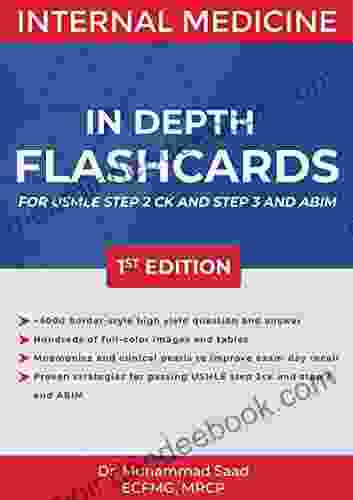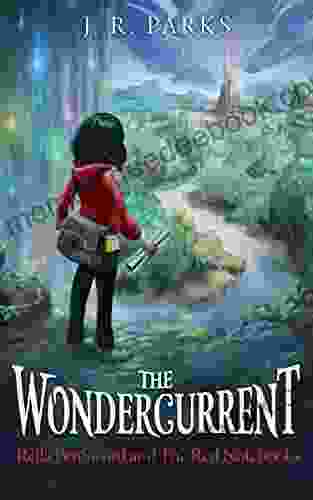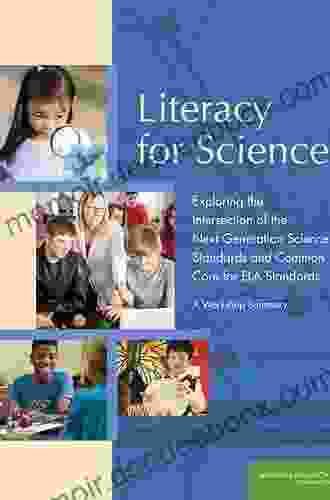In-Depth Flashcards in Internal Medicine: A Comprehensive Guide for Healthcare Professionals

Flashcards have long been a valuable tool for medical students and practitioners alike. For internal medicine, flashcards can be particularly beneficial for mastering a vast and complex body of knowledge. In this article, we will explore the use of flashcards in internal medicine, discussing their benefits, limitations, and how to create and use them effectively.
4.6 out of 5
| Language | : | English |
| File size | : | 29594 KB |
| Text-to-Speech | : | Enabled |
| Screen Reader | : | Supported |
| Enhanced typesetting | : | Enabled |
| Print length | : | 6546 pages |
| Lending | : | Enabled |
| Library Binding | : | 128 pages |
| Reading age | : | 15 - 17 years |
| Grade level | : | 12 and up |
| Item Weight | : | 7.5 ounces |
| Dimensions | : | 5.06 x 0.49 x 7.81 inches |
| Paperback | : | 214 pages |
Benefits of Flashcards for Internal Medicine
There are numerous benefits to using flashcards for studying internal medicine, including:
- Improved memory retention: Flashcards help to improve memory retention by actively engaging the brain in the learning process. The act of recalling information from memory strengthens neural pathways, making it easier to remember the material in the long term.
- Enhanced understanding: Flashcards can help to enhance understanding of complex concepts by breaking them down into smaller, more manageable units. By repeatedly reviewing and testing oneself on these smaller units, learners can develop a deeper understanding of the material as a whole.
- Increased efficiency: Flashcards can help to increase efficiency by providing a structured and focused approach to studying. By focusing on one concept at a time, learners can avoid distractions and stay on track with their learning goals.
- Convenience and portability: Flashcards are a convenient and portable way to study, making it easy to fit learning into busy schedules. They can be used anywhere, anytime, making it possible to study on the go or during short breaks.
Limitations of Flashcards
While flashcards can be a valuable tool for studying internal medicine, it is important to be aware of their limitations:
- Can be time-consuming to create: Creating flashcards can be a time-consuming process, especially for large amounts of material. However, there are many pre-made flashcard decks available online that can save time.
- May not be suitable for all learning styles: Flashcards may not be suitable for all learning styles. Some learners may find them to be too repetitive or boring. It is important to experiment with different study techniques to find what works best for you.
- Can lead to rote memorization: If flashcards are used solely for rote memorization, they may not lead to a deep understanding of the material. It is important to use flashcards in conjunction with other study methods, such as reading, writing, and problem-solving, to develop a well-rounded understanding of the subject matter.
How to Create and Use Flashcards Effectively
To create and use flashcards effectively for internal medicine, follow these steps:
- Identify the material to be covered: Start by identifying the specific topics or concepts that you need to study. This may include diseases, medications, diagnostic tests, or clinical procedures.
- Create the flashcards: On one side of the flashcard, write the term or concept. On the other side, write the definition, explanation, or other relevant information. You can also include images, diagrams, or examples on the flashcards to enhance understanding.
- Review regularly: The key to using flashcards effectively is to review them regularly. Aim to review your flashcards at least once a day, or more often if possible. The more you review, the stronger your memory retention will be.
- Test yourself: As you review your flashcards, test yourself by trying to recall the information on the back of the card without looking at it. This will help to identify areas where you need additional study.
- Make adjustments: As you use your flashcards, you may find that some cards are too easy or too difficult. Make adjustments to the cards as needed to ensure that they are challenging but not overwhelming.
Flashcards can be a valuable tool for studying internal medicine and improving patient care. By understanding the benefits, limitations, and how to create and use them effectively, healthcare professionals can harness the power of flashcards to enhance their knowledge and skills.
References
- Roediger, H. L., & Butler, A. C. (2011). The critical role of retrieval practice in long-term retention. Cognitive Science, 35(6),1117-1124.
- Karpicke, J. D., & Roediger, H. L. (2013). The critical importance of retrieval for learning. Science, 342(6158),966-968.
- Kang, S. H. (2016). The use of flashcards in medical education: A review of the literature. Medical Education, 50(1),1-10.
4.6 out of 5
| Language | : | English |
| File size | : | 29594 KB |
| Text-to-Speech | : | Enabled |
| Screen Reader | : | Supported |
| Enhanced typesetting | : | Enabled |
| Print length | : | 6546 pages |
| Lending | : | Enabled |
| Library Binding | : | 128 pages |
| Reading age | : | 15 - 17 years |
| Grade level | : | 12 and up |
| Item Weight | : | 7.5 ounces |
| Dimensions | : | 5.06 x 0.49 x 7.81 inches |
| Paperback | : | 214 pages |
Do you want to contribute by writing guest posts on this blog?
Please contact us and send us a resume of previous articles that you have written.
 Book
Book Novel
Novel Chapter
Chapter Genre
Genre Library
Library Paperback
Paperback E-book
E-book Magazine
Magazine Sentence
Sentence Shelf
Shelf Glossary
Glossary Foreword
Foreword Preface
Preface Synopsis
Synopsis Annotation
Annotation Footnote
Footnote Manuscript
Manuscript Codex
Codex Biography
Biography Thesaurus
Thesaurus Narrator
Narrator Character
Character Librarian
Librarian Archives
Archives Periodicals
Periodicals Study
Study Research
Research Scholarly
Scholarly Lending
Lending Reserve
Reserve Academic
Academic Journals
Journals Reading Room
Reading Room Rare Books
Rare Books Special Collections
Special Collections Study Group
Study Group Storytelling
Storytelling Awards
Awards Reading List
Reading List Book Club
Book Club Ashley Blooms
Ashley Blooms Pamela Legge
Pamela Legge Jessica Trisko Darden
Jessica Trisko Darden R E Skibiski
R E Skibiski Stephen Landry
Stephen Landry Jean Kwok
Jean Kwok Susan Chernak Mcelroy
Susan Chernak Mcelroy Amitav Chakravarti
Amitav Chakravarti James D Boys
James D Boys Willie Perdomo
Willie Perdomo Colin James
Colin James Zoe Beth Geller
Zoe Beth Geller Christopher B Balme
Christopher B Balme Natalie Dean
Natalie Dean Alfred Frederick Pollock Harcourt
Alfred Frederick Pollock Harcourt Felicia Lin
Felicia Lin Niall O Connor
Niall O Connor Christopher Ali
Christopher Ali Gilbert Morris
Gilbert Morris Pets Unchained
Pets Unchained
Light bulbAdvertise smarter! Our strategic ad space ensures maximum exposure. Reserve your spot today!

 Winston HayesBrighten the Corner Where You Are: Inspiring Acts of Kindness to Illuminate...
Winston HayesBrighten the Corner Where You Are: Inspiring Acts of Kindness to Illuminate... W. Somerset MaughamFollow ·13.6k
W. Somerset MaughamFollow ·13.6k Herb SimmonsFollow ·18.7k
Herb SimmonsFollow ·18.7k William GoldingFollow ·18.7k
William GoldingFollow ·18.7k Richard AdamsFollow ·5.4k
Richard AdamsFollow ·5.4k Virginia WoolfFollow ·7.4k
Virginia WoolfFollow ·7.4k Lee SimmonsFollow ·9k
Lee SimmonsFollow ·9k Michael ChabonFollow ·10k
Michael ChabonFollow ·10k Chandler WardFollow ·17k
Chandler WardFollow ·17k

 Vernon Blair
Vernon BlairHow to Get a Woman to Pay for You: A Comprehensive Guide...
In the modern dating...

 Levi Powell
Levi PowellPrinciples and Theory for Data Mining and Machine...
Data mining and machine learning are two...
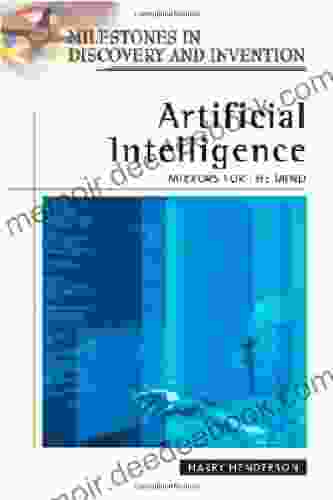
 Andrew Bell
Andrew BellMirrors For The Mind: Milestones In Discovery And...
Mirrors have been a part of human history...
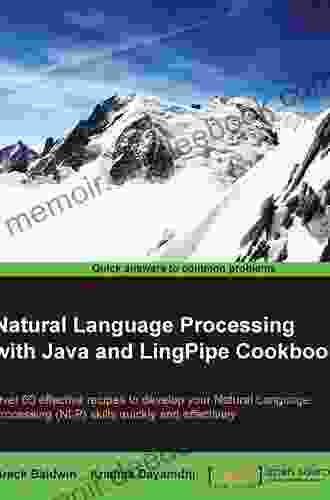
 Alec Hayes
Alec HayesDelving into Natural Language Processing with Java and...
Natural Language Processing (NLP) is an...
4.6 out of 5
| Language | : | English |
| File size | : | 29594 KB |
| Text-to-Speech | : | Enabled |
| Screen Reader | : | Supported |
| Enhanced typesetting | : | Enabled |
| Print length | : | 6546 pages |
| Lending | : | Enabled |
| Library Binding | : | 128 pages |
| Reading age | : | 15 - 17 years |
| Grade level | : | 12 and up |
| Item Weight | : | 7.5 ounces |
| Dimensions | : | 5.06 x 0.49 x 7.81 inches |
| Paperback | : | 214 pages |


